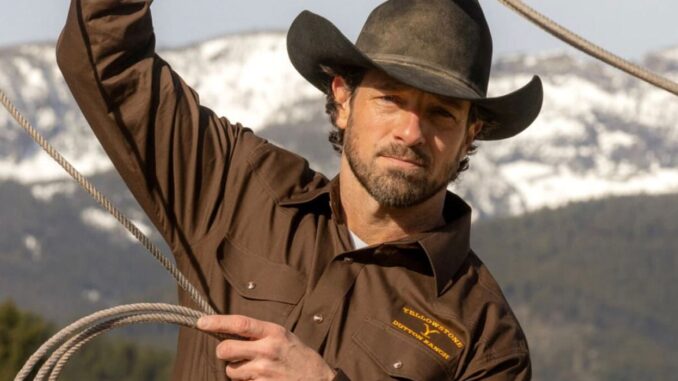
The tumbleweeds of traditional Westerns once rolled across American television screens, carrying with them clear-cut tales of good versus evil, rugged individualism, and the taming of a wild frontier. Figures like the lone gunslinger, the noble sheriff, or the pioneering homesteader epitomized a specific, almost mythical, American past. Then came Yellowstone, a show that didn't just ride into town; it bulldozed the old saloon and built a high-rise casino in its place. Taylor Sheridan’s juggernaut didn’t merely revive the Western; it fundamentally reshaped it, pulling the genre from its nostalgic past into a morally ambiguous, brutally contemporary, and irresistibly complex present.
One of Yellowstone's most profound changes was its defiant shift from historical chronicle to a modern saga. Previous Westerns, from Gunsmoke to Bonanza, were firmly set in the 19th century, exploring the challenges of Manifest Destiny and frontier justice. Their conflicts stemmed from land claims, cattle rustling, and clashes with Indigenous tribes, all viewed through a sepia-toned lens. Yellowstone, however, plunked the Dutton ranch squarely in the 21st century, complete with cell phones, corporate jets, and political power plays. Its threats aren't outlaws from the past but land developers, shrewd lawyers, casino moguls, and ambitious politicians. The struggle for the Duttons isn't about claiming land, but desperately defending it from forces of modernization and capital, a far more resonant theme for contemporary audiences grappling with urban sprawl and corporate greed. This contemporary setting allowed for the infusion of modern issues like environmentalism, tribal sovereignty in the age of casinos, and the decay of family legacies under immense pressure, elements largely absent from their predecessors.
Beyond the setting, Yellowstone obliterated the simplistic moral binaries that defined classic Westerns. John Wayne’s characters were unequivocally good; their adversaries, unequivocally evil. The lines were drawn in the dust. The Dutton family, led by patriarch John Dutton, are undeniably the protagonists of Yellowstone, but they are far from heroes in the traditional sense. They are ruthless, violent, manipulative, and often operate outside the law, all in the name of protecting their ranch and family legacy. Beth Dutton is a force of nature whose loyalty is matched only by her capacity for vengeance and verbal laceration. Rip Wheeler, the ranch's enforcer, dispenses "cowboy justice" with brutal efficiency, often resorting to murder. The show forces viewers to grapple with the idea that even those we root for can commit heinous acts, blurring the lines between right and wrong. This moral ambiguity—where the "good guys" are often the most dangerous, and their motivations are deeply complex and often selfish—stands in stark contrast to the straightforward heroism of classic Western archetypes, mirroring the nuanced morality of modern anti-hero dramas like The Sopranos or Breaking Bad.
Furthermore, Yellowstone successfully transcended the traditional Western genre, effectively creating a "neo-Western" that blends elements of family saga, crime drama, political thriller, and even soap opera. Classic Westerns primarily focused on action, adventure, and the establishment of law and order. While Yellowstone has no shortage of intense shootouts and physical altercations, it dedicates significant screen time to boardroom battles, political maneuvering in the governor's mansion, and the intricate, often toxic, dynamics within the Dutton family itself. The emotional core of the series lies in the relationships – the tortured bond between John and his children, the volatile passion of Rip and Beth, the simmering resentments among siblings. This multi-genre approach opened the Western to a broader audience who might not typically gravitate towards horses and hats, attracting viewers drawn to character-driven dramas and intricate plotlines, expanding the definition of what a "Western" could be.
Finally, Yellowstone ushered in a new era of gritty realism and mature themes. Old Westerns, while sometimes violent, often presented a sanitized version of frontier life. Sexuality was implied, language was clean, and the consequences of violence were rarely graphically depicted. Yellowstone pulled back the curtain, showcasing visceral violence, frank sexuality, and liberal use of profanity. It delves into dark themes like trauma, abuse, and the profound psychological scars left by a life of violence and loss. The "train station" — a euphemism for the remote cliff where enemies and problems disappear — is a chilling testament to the brutal measures the Duttons take. This unapologetic portrayal of a harsh reality, where life is cheap and loyalty is earned through blood, reflects the darker, more mature storytelling prevalent in contemporary prestige television. It proved that the Western, far from being a quaint relic, could be as cutting-edge and raw as any other genre.
In conclusion, Yellowstone didn't just breathe new life into the Western; it fundamentally reinvented its DNA. By transporting the genre from the nostalgic past to the complex present, embracing moral ambiguity over simplistic heroism, blending diverse narrative styles, and pushing the boundaries of mature storytelling, Taylor Sheridan transformed what a "Western" could be on television. It moved beyond the mythical frontier to explore the modern struggle for land, legacy, and power, leaving an indelible mark on the small screen and proving that the spirit of the West, though changed, remains as compelling as ever.
